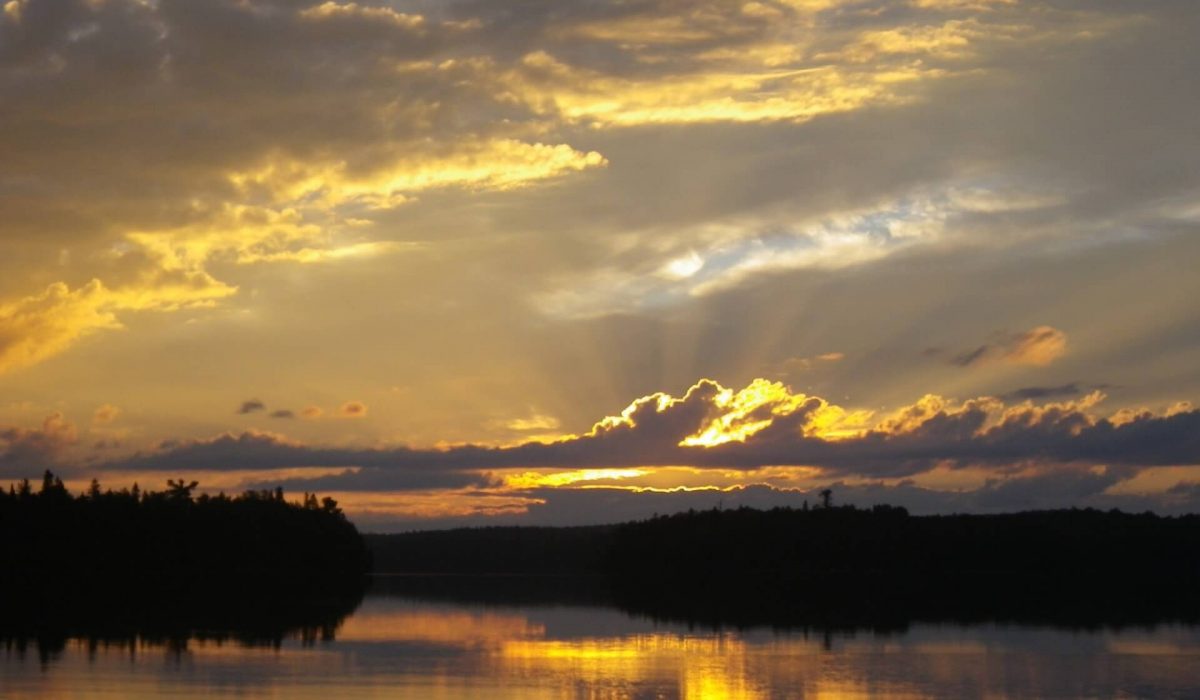Nestled on the outskirts of Otter Lake, what was once known as Squaw Lake and Lac de l’Indienne has undergone a name change rooted in acknowledging and respecting the history of the land, its people, and legacy.
The original name, Squaw Lake, stemmed from the early days when the region was home to the Algonquin Nation, specifically a tribe called “The Bald Head” or in French, “Les Têtes de Boule.” They settled in this area for practical reasons — two rivers, the Picanoc and Coulonge, flowed from the north to the south.
These rivers were vital transportation routes, acting as the highways of the time. Canoes were the primary mode of travel for the Algonquin people, and when the men ventured north to hunt, the women and children remained by the lake. The rivers served as an escape route for them in case of an emergency, providing safety and refuge.
When Squaw Lake Outfitter, now known as Pourvoirie Tisonagan Lodge, was acquired in 2006 by Martin Leduc and Danielle Marchand, the meaning behind the name “Squaw” was unknown to them. At that time, they genuinely believed the term referred to a female native person.
Little did they know, “Squaw” is a derogatory word with a meaning tied to demeaning and objectifying women. It wasn’t until about 10 years later that the owners began receiving emails and messages on their Facebook page accusing them of racism, sparking a realization that the name was problematic.

This led to a deep dive into the history and cultural implications of the name. With the help of local community leaders and experts, the owners decided it was time to change the name to something more respectful.
The journey ultimately led to a meeting with Shirley Tolley, the Women’s Representative for the Algonquin Anishnabe Nation Tribal Council. She was instrumental in helping the owners understand the broader cultural significance of their actions and the importance of choosing a name that honors the land’s indigenous heritage.
About five years ago, a meeting was organized between the owners, the MRC Pontiac, and Tolley to explore potential names that would respect the Algonquin people and their language.
The Ministry of Toponymy of Quebec had de-officialized the name of the lake, leaving it nameless. Renaming a body of water is no easy task —many names have already been used over the years. After much thought and consultation, they chose Shinwõk Lake, which means “White Pine” in the Algonquin language.
The white pine, a symbol of strength and endurance, represents the resilience of the Algonquin people who’ve lived on this land for centuries. As part of this transformation, the owners also decided to rename their business Pourvoirie Tisonagan Lodge.
The name Tisonagan means “Trap” in Algonquin, a nod to the lodge’s history of trapping and trade. This name also connects to the owners’ YouTube series on the history of trapping, which has aired over four seasons and has more than 35 episodes. The series offers a unique glimpse into the past and a way to preserve the traditions of the land. While the name of the lake and lodge has been changed, the transition is far from over. It includes revamping the business’ website, updating brochures, changing email addresses, and replacing promotional materials and signs.
The process will likely take a few years, said Leduc, but the owners believe it’s worth every bit of effort to honour the people who called this land home long before them. The decision to rename Squaw Lake is a step in building a future where history is honoured, and cultural sensitivity is at the forefront. Through this process, the lodge and lake now carry names that reflect the deep cultural roots of the land and its people—a journey of respect, reflection, and reconciliation.


